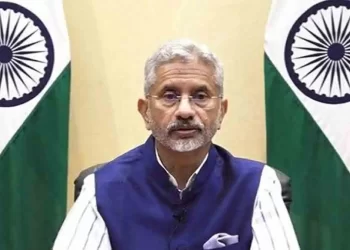The Election Commission of India (ECI) released the timetable for the Delhi Assembly election on Tuesday. The national capital will hold a single-phase election on February 5 and count on February 8.
The tenure of the 70-member Assembly ends on February 23, and elections must be held before then to form a new House. The national capital has typically held Assembly elections in a single period.
The national capital’s Assembly election will be contested by the ruling AAP, the opposition BJP, and the Congress.
The Aam Aadami Party (AAP) hopes to win a third term in a row. It won 62 out of 70 seats in the Assembly. The remainder were taken by the BJP.
The AAP, which has been jolted by the arrests of numerous leaders, including former Chief Minister Arvind Kejriwal, in corruption charges, has been making a number of promises to Delhi residents. From playing religious cards to attempting to shower women and senior citizens with specific welfare schemes, the AAP is doing everything possible to maintain its base and win another term in office.
The BJP, on the other side, is exaggerating corruption allegations against the AAP and its convenor, Arvind Kejriwal. It is aiming to make inroads into the AAP base and win the required number to form the government. The BJP has been out of power in Delhi since 1998 and now is looking at ending this drought.
The Congress party is eager to make a comeback in the national capital. After being rejected by Delhi voters in the past two Assembly elections, the Congress is desperately attempting to mark its presence in the next elections. It has targeted the female electorate by announcing the ‘Pyari Didi Yojana’, which promises Rs 2,500 in financial aid to those who qualify.
In the Delhi Assembly, the magic number is 36.
The Election Commission of India has produced a newly amended voter list for Delhi. According to the most recent data, the voter base has expanded dramatically during the last two months. In October 2024, the total number of voters was 1,53,57,529. However, after a summary correction, this figure has climbed to 1,55,24,858, an increase of 1,67,329 new electorates by December 2024.
Source: IANS







 Finance
Finance







